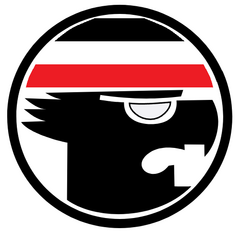Gothic People's Party
| This article is a stub. You can help IxWiki by expanding it. |
Gothic People's Party | |
|---|---|
 | |
| Abbreviation | GP |
| Chairman | Gregor Leif |
| Vice Chairman | Karl-Heinz zu Kämpfke |
| Founded | March 5, 1910 |
| Ideology | |
| Political position | Far-right |
| Colours |
|
| Yonderian Parliament | 2 / 199
|
The Gothic People's Party, known as Gotische Volkspartei in Gothic and Parti Populaire Gothique in Burgoignesc, is an ethnonationalist political party on the far-right of Yonderian poltics. The core policies of the Gothic People's Party are Pan-Gothism, Gothic nationalism, enviromentalism (sometimes described as ecofascism) and skepticism towards immigration and the Levantine Union. Holding two seats in the Yonderian Parliament, occupied by chairman Gregor Leif and vice chairman Karl-Heinz zu Kämpfke, the Gothic People's Party is the smallest party represented in Guillaumebourg.
Founded in 1910 as a direct reaction to the Great Depression, the party initially subscribed to ideals of economic reform through authoritarian conservatism and opposition to the concept of a Yonderian ethno-cultural group, an opposition based largely on Gothic nationalism but also with substantial Burgophobic tendencies. The Gothic People's Party received only limited popular support in the Great War period, the party never surpassing 6% of the vote. In the late 1980s, the Gothic People's Party began taking an increased interest in environmentalist politics, advocating for what some political commentators have since dubbed "ecofascism".
The Gothic People's Party continues to exist on the fringes of Yonderian politics, finding some common ground politically with parties such as the Fatherland Party on social issues. The Gothic People's Party is today described variously as right-wing populist, pan-Gothic, nationalist, anti-Levantine Union, ecofascist and anti-immigration, standing in opposition to modern trends such as feminism and LGBT rights.